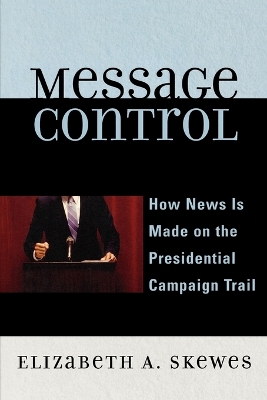Communication, Media and Politics
2 total works
Instead of focusing exclusively on the gender of candidates for the presidency, this book will explore how the gender of journalists covering Hillary Clinton, Sarah Palin and the other candidates in 2008 affected news coverage, as well as issues about how the gender of campaign managers and strategists affected the campaign process. The key questions Skewes will focus on are: Is news coverage reported by women on the campaign trail qualitatively different from the news generated by men covering the election? Do women journalists have the same kind of access to candidates, campaign strategists and other campaign officials as the 'boys on the bus'? Are women candidates treated differently from the men running for the same office, and why? Do campaign managers think that women candidates do better when they focus on 'women's issues,' such as education and human welfare issues? How do women candidates and those who run their campaigns deal with the 'hair, hemlines, and husbands' coverage that often dominates their news coverage? And finally, what do women need to do to win the White House?
Message Control_a look at what shapes the news from the presidential campaign trail_comes out of the author's experience traveling with campaigns, interviews with other journalists who have covered campaigns from the road, and research on campaign news. Elizabeth Skewes, a journalism professor and former reporter, investigates journalists' beliefs and the role those beliefs play in the election process, as well as how the routines of campaign reporting affect news coverage. While Skewes does find that journalists make an effort to inform the voting decisions of their readers by giving them a sense of context for each campaign and each candidate's character, she also shows that journalists remain wary of staff manipulation and are constrained by pack journalism, press pools, and life 'in the bubble.' From on-the-trail perspectives to media theory explanations, Message Control begins to answer the question of why political coverage focuses on personalities and peccadilloes when studies show the public wants less of this and more discussion of political issues.

